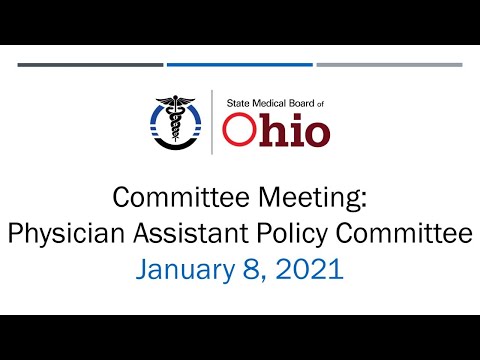Medicare and Medicaid Assistance: What You Need to Know
Contents [show]
If you or a loved one are nearing retirement age, you may have questions about Medicare and Medicaid. Here’s what you need to know about these government-sponsored health insurance programs.
Checkout this video:
What is Medicare?
Medicare is a federal health insurance program for people who are 65 years of age or older, certain younger people with disabilities, and people with End-Stage Renal Disease (ESRD) (permanent kidney failure requiring dialysis or a transplant).
What is Medicaid?
Medicaid is a public health insurance program for low-income individuals and families. It is jointly funded by the federal government and state governments, and is administered by the states. Medicaid provides coverage for medical and long-term care services.
Medicaid eligibility is determined by income, assets, and family size. In most states, Medicaid covers children, pregnant women, parents, disabled adults, and seniors. Coverage for other adults is expanding in some states under the Affordable Care Act.
Medicaid benefits are not just limited to those who are categorically eligible. In many states, so-called “optional” populations are also covered. These populations include low-income adults without dependent children, as well as people with disabilities who are not covered by Medicare. Optional populations may have somewhat different benefit packages than categorically eligible populations.
In general, Medicaid pays for medically necessary services that are provided by licensed providers. These services can include doctor visits, hospitalization, prescriptions, vision care, dental care, and long-term care services such as home health care and nursing home care.
How do Medicare and Medicaid work together?
The Centers for Medicare and Medicaid Services (CMS) is a federal agency that administers the Medicare and Medicaid programs. Medicare is a health insurance program for people 65 and older, while Medicaid is a health insurance program for low-income individuals and families.
Medicare and Medicaid work together in a few different ways. For example, if you qualify for both programs, your Medicaid coverage can help pay your Medicare premiums (as well as other out-of-pocket costs like deductibles and coinsurance). In addition, if you have Medicaid coverage, you may be able to get additional benefits that aren’t covered by Medicare, like long-term care or dental care.
Of course, not everyone will qualify for both programs. If you don’t think you’ll qualify for Medicaid based on your income and assets, you can still apply for a “spend down” program which may allow you to become eligible for Medicaid coverage after you’ve paid certain medical expenses.
If you have questions about how Medicare and Medicaid work together (or whether you qualify for both programs), the best place to start is by contacting your state’s Medicaid office or the CMS at 1-877-267-2323.
What are the benefits of Medicare and Medicaid?
There are many benefits to having Medicare and Medicaid.
Medicare is a health insurance program for people 65 and older, as well as those with certain disabilities.
Medicaid is a government program that provides health care for low-income people of all ages.
Both programs help cover the costs of medical care, including hospital stays, doctor visits, prescription drugs, and other health services.
In some cases, Medicare and Medicaid also cover the cost of long-term care, such as nursing home care or in-home care.
If you have Medicare and Medicaid, you will have two different cards – one for each program. You can use both cards to get the benefits you are entitled to under each program.
What are the eligibility requirements for Medicare and Medicaid?
To be eligible for Medicare, you must be 65 years of age or older, or you must be under 65 years of age and have a qualifying disability. You may also be eligible for Medicare if you have end-stage renal disease or amyotrophic lateral sclerosis.
To be eligible for Medicaid, you must meet your state’s income and asset requirements. In some states, Medicaid is available to adults with incomes below a certain level, even if they don’t have children. In other states, Medicaid is only available to adults with children if their incomes are below a certain level. And in some states, Medicaid is only available to people with disabilities or to people who are elderly.
How do I sign up for Medicare and Medicaid?
You may be able to get help paying for your health care costs through the Medicare and Medicaid programs. The two programs are different, but both are run by the federal government.
Medicare is a health insurance program for people 65 years of age or older, people under 65 with certain disabilities, and people of any age with End-Stage Renal Disease (ESRD) (permanent kidney failure requiring dialysis or a transplant).
Medicaid is a health insurance program for low-income adults and children, pregnant women, people with disabilities, and people over 65. Each state has different eligibility requirements.
You can apply for Medicare and Medicaid at the same time through the Social Security Administration (SSA). You can apply online at www.ssa.gov/medicare/apply.html, or call 1-800-772-1213.
How do I use Medicare and Medicaid?
Original Medicare, Part A and Part B, pays for many, but not all, medical services and supplies. You can choose to receive your benefits through Original Medicare, a Medicare Advantage Plan (like an HMO or PPO), or other Medicare health plan. If you have limited income and resources, Medicaid may pay for some or all of your costs.
There are four ways to get your Medicare coverage:
-Original Medicare (Part A and Part B)
-A Medicare Advantage Plan (like an HMO or PPO)
-A Medicare Cost Plan
-A Demonstration/Pilot Program
You can also get other coverage to help pay for the things that Original Medicare doesn’t cover like prescription drugs, dental care, and long-term care.
What are the costs of Medicare and Medicaid?
There is no single answer to this question as the costs of Medicare and Medicaid can vary depending on a number of factors, including the type of coverage you have, your state of residence, and your individual circumstances. However, there are some general guidelines that can help you estimate the costs of these two programs.
Medicare is a federal health insurance program that is available to all US citizens and permanent residents who are over the age of 65, or who have certain disabilities. Medicaid is a joint federal-state health insurance program that provides coverage to low-income individuals and families.
The costs of Medicare coverage can vary depending on the type of coverage you choose. For example, Medicare Part A (hospital insurance) is free for most people, while Medicare Part B (medical insurance) typically requires a monthly premium. There are also deductibles and copayments associated with Medicare coverage.
Medicaid costs also vary depending on the state in which you live, as each state sets its own eligibility requirements and benefit levels. In general, however, Medicaid provides free or low-cost health insurance coverage for low-income individuals and families.
What are the covered services under Medicare and Medicaid?
Both Medicare and Medicaid are government-sponsored health insurance programs, but there are some key differences between the two. Medicare is a federal program that provides health insurance for seniors and some disabled individuals, while Medicaid is a state-run program that provides health insurance for low-income individuals and families.
Medicare covers a wide range of medical services, including hospitalization, doctor’s visits, prescription drugs, and preventive care. Medicaid coverage varies from state to state, but most states cover doctor’s visits, prescriptions, hospitalization, and some preventive care. In some states, Medicaid also covers long-term care services such as nursing home care.
Are there any limitations on Medicare and Medicaid?
There are some limitations to both Medicare and Medicaid, but they vary depending on the program. For example, Medicaid only covers certain low-income adults, while Medicare provides coverage for all seniors. Additionally, Medicaid only covers certain medical expenses, while Medicare provides more comprehensive coverage.
It’s important to understand the limitations of each program before you sign up. Otherwise, you may end up being responsible for out-of-pocket costs that you weren’t expecting. If you have any questions, be sure to ask your doctor or a representative from the program.







